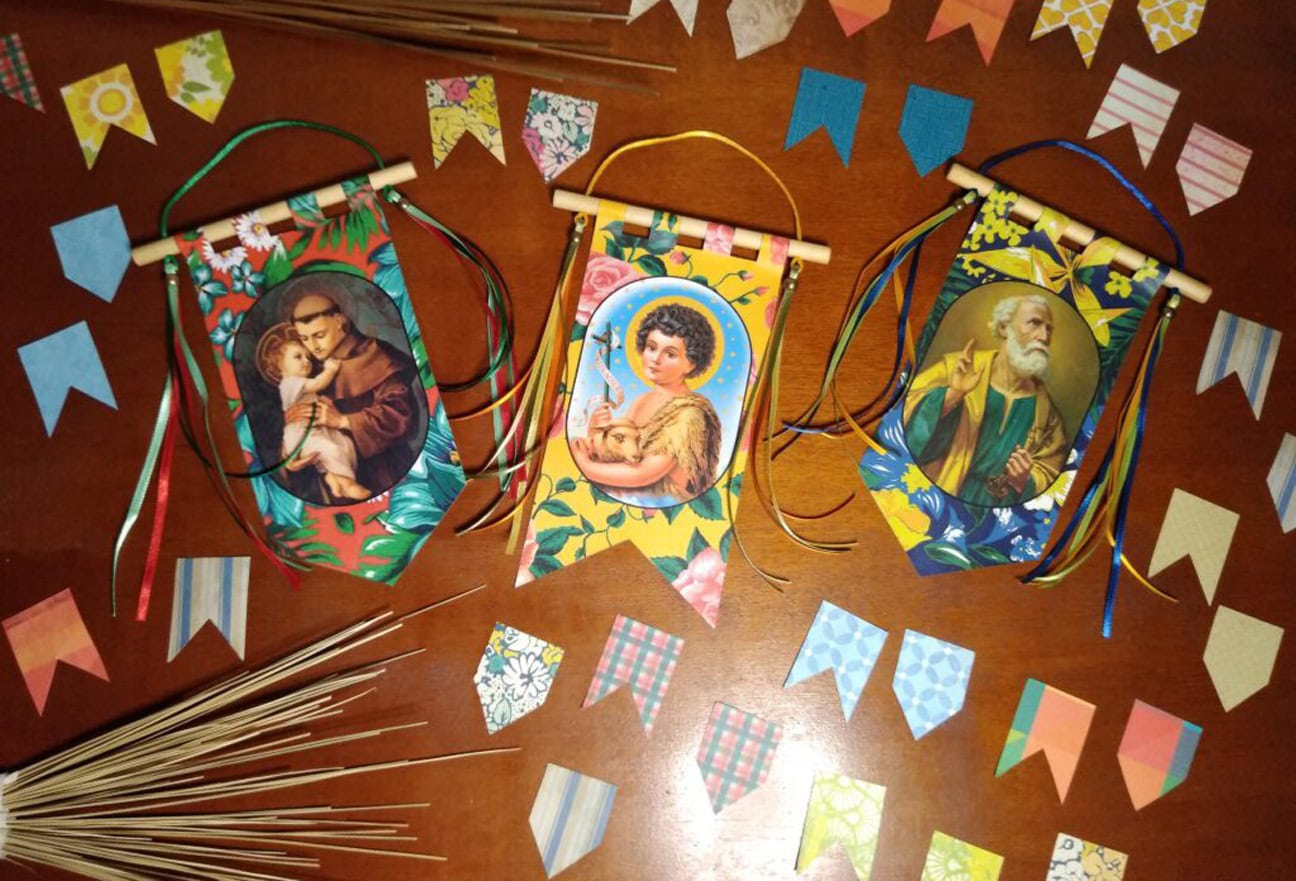In the heart of Brazil, nestled within the rich tapestry of its cultural heritage, lies a festival that embodies the essence of Brazilian joie de vivre – Festa Junina (June Festivities). This colorful celebration, deeply rooted in rural traditions, pays homage to the rural lifestyle, Catholic saints, and the bountiful harvest season. From the rhythmic beats of forró music to the aroma of traditional delicacies, Festa Junina captivates the senses and unites communities in a jubilant display of Brazilian identity.
 Festa Junina typically takes place throughout the month of June, although festivities can extend into July, marking the end of the rainy season and the beginning of the harvest period in Brazil. Originally introduced by Portuguese colonizers, the festival evolved over centuries, blending European customs with indigenous and African influences to create a uniquely Brazilian experience.
Festa Junina typically takes place throughout the month of June, although festivities can extend into July, marking the end of the rainy season and the beginning of the harvest period in Brazil. Originally introduced by Portuguese colonizers, the festival evolved over centuries, blending European customs with indigenous and African influences to create a uniquely Brazilian experience.
Central to Festa Junina are the festivities honoring three Catholic saints: St. Anthony, St. John the Baptist, and St. Peter. St. Anthony, known as the patron saint of marriage, is celebrated on June 13th, kicking off the festival with prayers and traditional rituals aimed at finding love or strengthening existing relationships. St. John the Baptist’s feast day falls on June 24th, marking the peak of the celebrations with bonfires, folk dances, and elaborate costumes. Finally, St. Peter’s day on June 29th brings the festivities to a close, often accompanied by fireworks and processions.
One of the hallmarks of Festa Junina is the vibrant array of decorations that adorn streets, homes, and public squares across Brazil. Colorful paper lanterns, known as “balões,” illuminate the night sky, while bunting, streamers, and cornhusk ornaments lend a festive atmosphere to the surroundings. Traditional motifs such as corn husks, scarecrows, and miniature farm animals evoke the rural setting of the festival and pay homage to Brazil’s agrarian roots.
 No Festa Junina would be complete without its culinary delights, which reflect the abundance of the harvest season. Corn, a staple crop in Brazilian agriculture, takes center stage in dishes such as “pamonha” (a sweet corn pudding), “canjica” (sweet corn porridge), and “milho verde” (grilled corn on the cob). Other popular treats include “curau” (a creamy corn dessert), “cocada” (coconut candy), and “quindim” (a golden coconut flan). These indulgent delicacies, often accompanied by warm beverages like “quentão” (a mulled wine) or “vinho quente” (hot spiced wine), provide sustenance and comfort during the chilly winter nights of June.
No Festa Junina would be complete without its culinary delights, which reflect the abundance of the harvest season. Corn, a staple crop in Brazilian agriculture, takes center stage in dishes such as “pamonha” (a sweet corn pudding), “canjica” (sweet corn porridge), and “milho verde” (grilled corn on the cob). Other popular treats include “curau” (a creamy corn dessert), “cocada” (coconut candy), and “quindim” (a golden coconut flan). These indulgent delicacies, often accompanied by warm beverages like “quentão” (a mulled wine) or “vinho quente” (hot spiced wine), provide sustenance and comfort during the chilly winter nights of June.
Music and dance are integral components of Festa Junina, infusing the festivities with energy and rhythm. Forró, a traditional Brazilian dance characterized by its lively tempo and close partner choreography, takes center stage at these celebrations. Accompanied by accordion, zabumba (a type of drum), and triangle, forró music fills the air with infectious melodies that compel revelers to join in the merriment. Throughout the night, dancers of all ages twirl and sway to the music, forging connections and forging bonds that transcend social barriers.
In addition to forró, Festa Junina features other regional dances and musical styles, each reflecting the cultural diversity of Brazil’s vast landscape. From the frenetic beats of “baião” to the graceful movements of “quadrilha” (a type of square dance), these performances showcase the rich tapestry of Brazilian folklore and tradition.
 Beyond its cultural significance, Festa Junina serves as a platform for community engagement and social cohesion. Families, friends, and neighbors come together to organize and participate in the festivities, strengthening bonds and fostering a sense of belonging. For rural communities, the festival represents a moment of respite from the rigors of agricultural labor, offering an opportunity to celebrate shared traditions and values.
Beyond its cultural significance, Festa Junina serves as a platform for community engagement and social cohesion. Families, friends, and neighbors come together to organize and participate in the festivities, strengthening bonds and fostering a sense of belonging. For rural communities, the festival represents a moment of respite from the rigors of agricultural labor, offering an opportunity to celebrate shared traditions and values.
Festa Junina stands as a testament to Brazil’s cultural diversity, resilience, and creativity. Through its vibrant displays of music, dance, food, and decoration, the festival encapsulates the spirit of Brazilian identity and serves as a source of joy and unity for communities across the country. As the bonfires burn bright and the sounds of forró fill the air, Festa Junina invites all to join in the celebration of life, love, and the rich tapestry of Brazilian culture.



